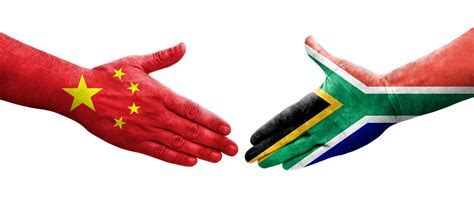South Africa has officially launched its G20 Presidency, beginning with the first of over 130 meetings that will lead up to the highly anticipated G20 Summit in 2025.
Held in Johannesburg on Monday, the first G20 Sherpas Meeting was inaugurated by Minister of International Relations and Cooperation, Ronald Lamola. This marks the start of South Africa’s year-long leadership under the theme: “Solidarity, Equality, Sustainability.”
The G20, comprising 19 countries and two regional bodies, is responsible for addressing the world’s most pressing economic and financial challenges. Together, these nations account for approximately 85% of global GDP and 75% of international trade, underscoring the importance of South Africa’s presidency in shaping global policies.
Minister Lamola emphasized that the Sherpa Track, led by personal representatives of G20 leaders, would spearhead discussions on the summit’s agenda.
“The first Sherpa Meeting is important traditionally, as it sets the stage for the upcoming Presidency and the critical conversations on some of the most vital issues of our time,” Lamola remarked.
He outlined South Africa’s commitment to promoting strong, sustainable, and inclusive global growth, inspired by the African philosophy of Ubuntu, which underscores humanity’s interconnectedness.
South Africa’s G20 Presidency is focused on achieving tangible results in several key areas. Among the top priorities are strengthening disaster resilience, securing debt sustainability for low-income nations, mobilizing finance for a just energy transition, and harnessing critical minerals to fuel inclusive growth.
In addition, South Africa will work towards reducing inequality through inclusive economic growth, industrialization, and the creation of employment opportunities. Lamola further stressed the role of artificial intelligence, data governance, and innovation in driving sustainable development.
In a notable development, South Africa is introducing three temporary Task Forces, an Initiative, and a Commission to bridge the gap between the Sherpa and Finance tracks.
These structures aim to deliver concrete outcomes during the Presidency, with a focus on long-term goals such as food security and ensuring access to sustainable energy.
A key deliverable will be the reflection on the G20’s first 20 years, assessing the group’s achievements and charting the path forward. Lamola also revealed plans to establish a “Cost of Capital Commission,” which will examine the challenges low-income countries face in securing financing for development projects.
“South Africa will build on the successes of the Brazilian G20 Presidency, continuing efforts to enhance the G20 as a platform for democratic global engagement,” Lamola added. He outlined plans to convene a G20 Social Forum ahead of the Leaders’ Summit in November 2025.
This forum will bring together representatives from civil society, State and non-State institutions, and other engagement groups to contribute their perspectives on global issues.
The G20’s influence on global economic policy cannot be overstated. With its collective impact on global trade, finance, and development, the grouping plays a pivotal role in shaping policies that drive economic stability and address global challenges.
As one of the world’s leading emerging markets, South Africa’s leadership in the G20 is seen as a beacon of hope for the African continent and the Global South. By positioning itself as a champion of solidarity and equality, South Africa aims to ensure that the voices of the most vulnerable nations are heard at the highest levels of global governance.
The decisions made during South Africa’s G20 Presidency could reverberate across the world, setting the tone for future international cooperation.
With a focus on inclusivity and sustainability, South Africa’s ambitious agenda is poised to redefine global priorities and influence the economic trajectory for years to come.
As Lamola aptly noted, “I trust that this meeting will set the trend for our subsequent meetings and that we will begin to look ahead toward the strategic imperatives for the next cycle of G20 cooperation.”









[…] Read More:South Africa Sets Bold Agenda for G20 Presidency to Tackle Global Crisis – jaina.co.za […]
[…] South Africa Sets Bold Agenda for G20 Presidency to Tackle Global Crisis – jaina.co.za […]